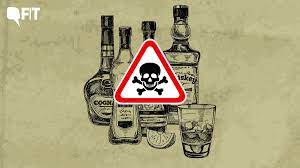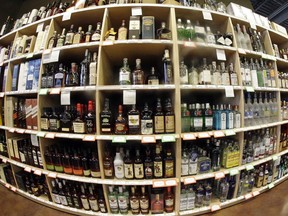
Opinion: More than a century after legalization, governments have yet to properly regulate the drug that’s killing 10 times more people each year than the number dying from illicit drug overdoses.
Published May 02, 2019

With so much focus on illicit drugs and overdose deaths, it might seem that opioids are the biggest addictions problem. Far from it.
Alcohol kills many more people each year (14,800 in 2014), results in more hospitalizations annually than heart attacks and is one of the most expensive and intractable health problems.
While cannabis was legalized a year ago and B.C.’s chief medical health officer is pushing hard for decriminalization and ultimately legalization of all illicit drugs, two Canadian addictions research centres want tougher regulations to mitigate the costs and harms of alcohol use and addiction.
The Victoria-based Canadian Institute for Substance Use Research and the Toronto-based Centre for Addiction and Mental Health want a minimum price of $3.50 for a standard drink in a bar or restaurant and $1.75 for off-premise sales. They also want a national minimum drinking age of 19, which is a year higher than national minimum for cannabis. Those are just two of the recommendations in reports they released last month that look at federal, provincial and territorial alcohol policies.
The reports also calling for stricter guidelines for advertising, restrictions on manufacturers’ and retailers’ promotions on digital and social media platforms, and a federal excise tax based on alcohol content that would replace the GST.

Over the past decades, the researchers found an erosion of effective policies and regulations.
“Overall, alcohol policy in Canada has been largely neglected relative to emerging initiatives addressing tobacco control, responses to the opioid overdose crisis, and restrictions imposed on the new legal cannabis market,” their report on the provinces and territories says. In several jurisdictions — Ontario is the worst example — “customer convenience and choice are being given priority over health and safety concerns … the responsibility of governments to warn citizens of potential risks is largely absent.”
Leave a Reply
You must be logged in to post a comment.